Are you making the most of your preventive care? Staying proactive about your health can save you from complications down the road, and regular check-ups are critical in catching issues early. In this article, we'll explore the essential steps you can take to keep your health on track and why these appointments are more important than you might think. Join us as we dive deeper into the world of preventive care and discover how to prioritize your well-being!
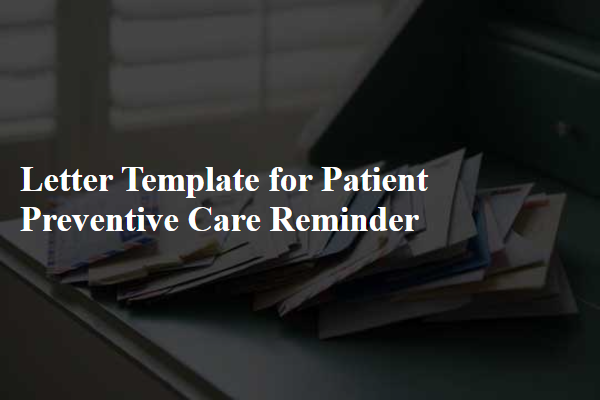
Personalization
Preventive care reminders can significantly enhance patient engagement and health outcomes. Personalized messages tailored to individual patients emphasize the importance of routine screenings such as mammograms for women aged 40 and above or colonoscopy for individuals 45 years and older. Highlight the specific medical history and risk factors of each patient, such as family history of diabetes or heart disease, to underscore the necessity for annual check-ups. Location-specific details, like available services at the local clinic or hospital, can facilitate easy access to care. Reminders for vaccinations, including the flu vaccine during the fall season or the shingles vaccine for those over 50, can also be included to ensure comprehensive preventive measures. Overall, personalization fosters a deeper connection between healthcare providers and patients, encouraging timely interventions and adherence to preventive healthcare practices.
Clear instructions
Routine preventive care significantly impacts long-term health outcomes. Annual physical examinations allow healthcare professionals to assess vital statistics such as blood pressure, body mass index (BMI), and cholesterol levels. These checks typically take place in local clinics or hospitals, often without appointment fees, providing an excellent opportunity for early detection of potential health issues. Screenings for age-specific conditions, including mammograms and colonoscopies, play a vital role in prevention, with guidelines suggesting specific intervals (for example, women aged 50-74 should undergo mammograms every two years). Vaccination updates, such as the flu vaccine, are crucial during flu season, typically from October to March. Regular dental check-ups are also essential for oral health, with recommendations suggesting a visit every six months. Staying on schedule with these preventive measures enhances overall well-being, minimizes the risk of severe health complications, and ensures better management of chronic diseases.
Contact information
Preventive care reminders play a crucial role in maintaining patient health and wellness, emphasizing the importance of regular check-ups and screenings. Cardiac screenings (recommended annually for individuals over 40) can help in early detection of heart-related issues, significantly lowering risks of serious conditions. Immunizations such as the flu vaccine (recommended annually for all ages) protect communities and individuals from seasonal influenza outbreaks. For women, mammograms (advised every two years for those aged 50-74) are vital for early breast cancer detection. Men should also consider prostate checks (starting at age 50) for proactive health management. Location-specific facilities (such as your local medical clinic in Springfield) can provide these services, ensuring accessibility while maintaining health records for continuous monitoring. Regular follow-up appointments (typically suggested every six to twelve months) are critical for preventive care adherence and optimal health outcomes.
Reminder details
Preventive care reminders play a crucial role in maintaining overall health. Regular check-ups and screenings, such as annual physical exams, colonoscopies recommended at age 45, or mammograms suggested for women starting at age 40, can significantly reduce the risk of serious health issues. Vaccinations, like the flu vaccine administered annually, and the shingles vaccine recommended for individuals over 50, are vital in preventing infectious diseases. Dental check-ups every six months contribute to oral health, while blood pressure and cholesterol screenings, typically advised every one to two years, are essential in managing cardiovascular disease risks. Staying proactive about these appointments is essential for early detection and effective health management.
Encouraging language
Preventive care is vital for maintaining optimal health and well-being, allowing for early detection of potential health issues. Regular check-ups at your healthcare provider, such as annual physical examinations, can lead to improved long-term health outcomes. Vaccinations, including the flu shot, can protect against contagious diseases while screenings for conditions like hypertension and diabetes can facilitate early interventions. Engaging in preventive care significantly contributes to overall quality of life, empowering you to lead a healthier lifestyle. Additionally, focusing on nutrition and physical activity can enhance your well-being and decrease risks associated with chronic diseases. Remember, proactive health management today ensures a healthier tomorrow.

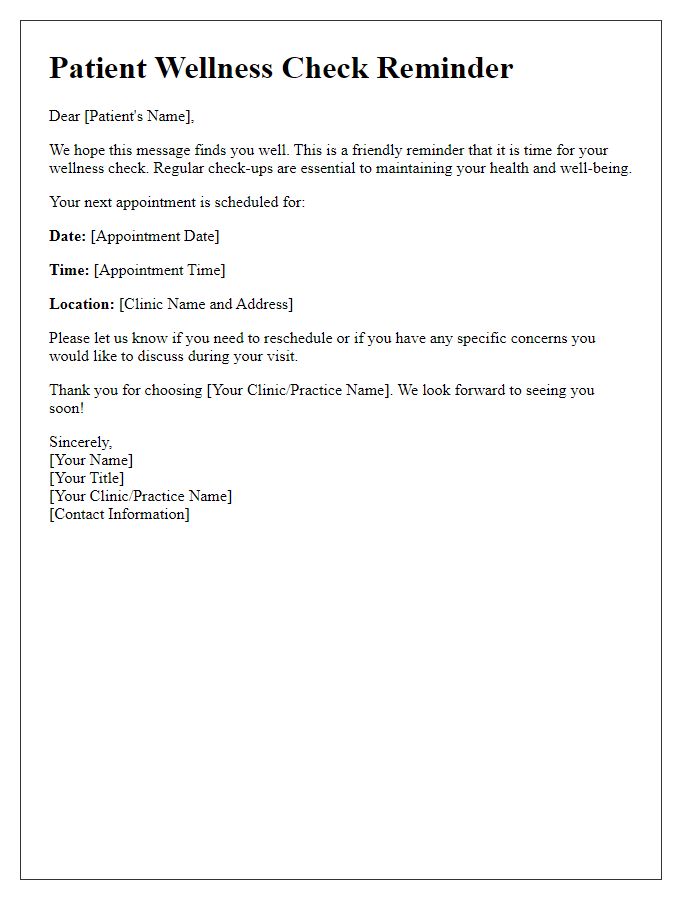
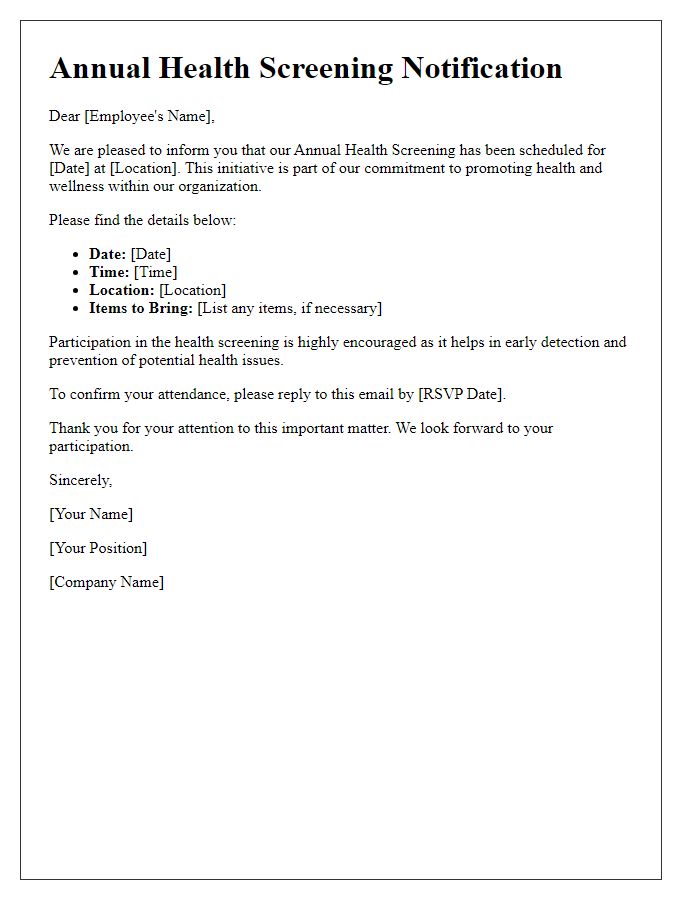
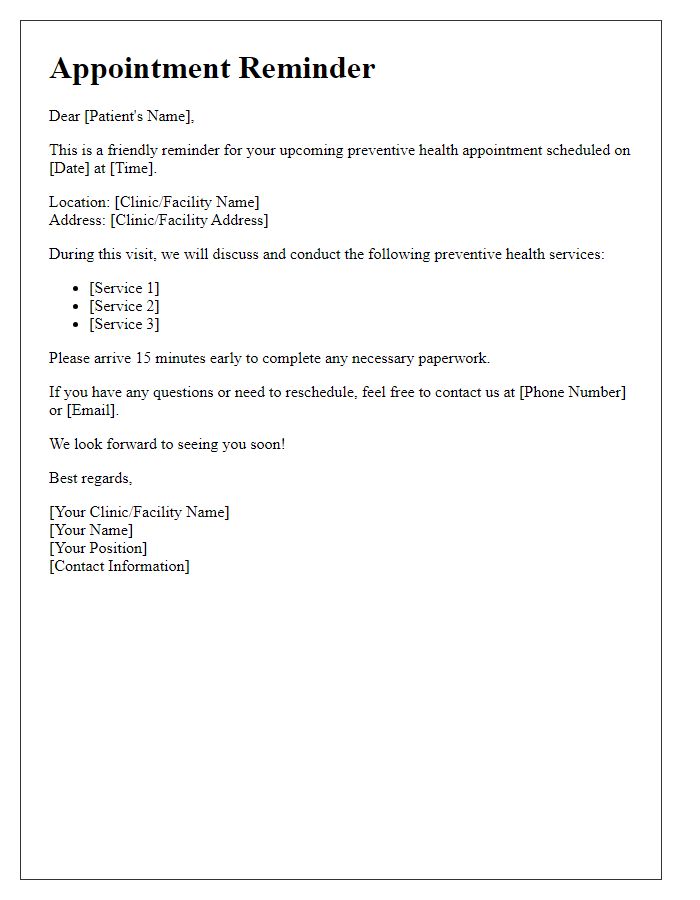
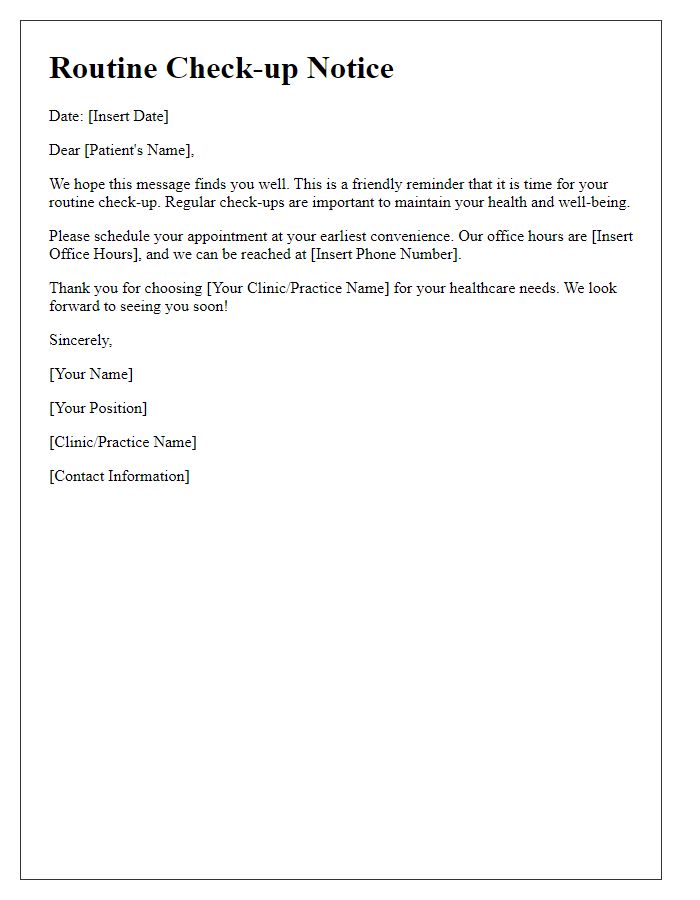
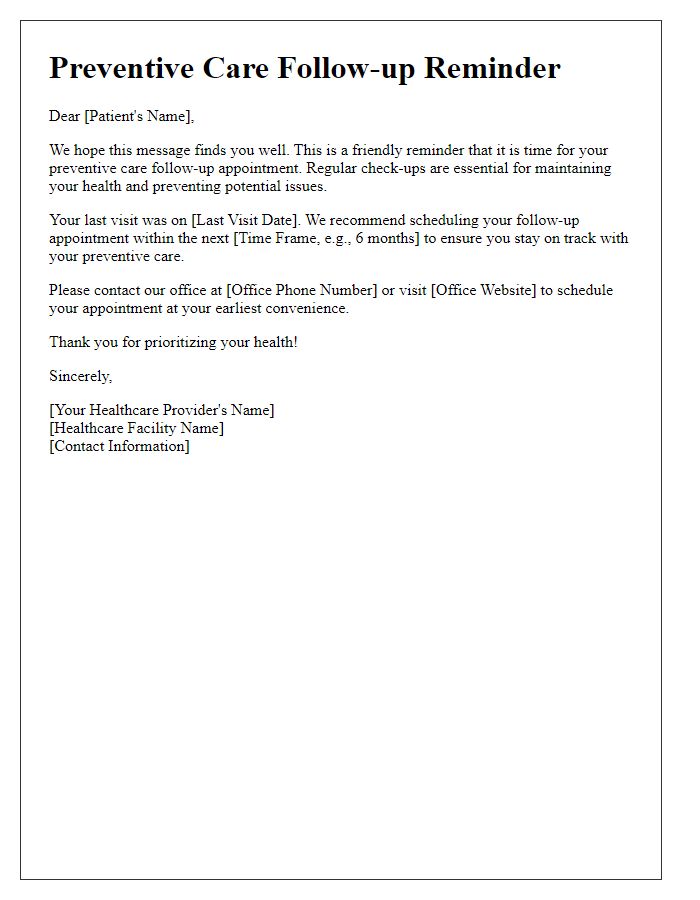
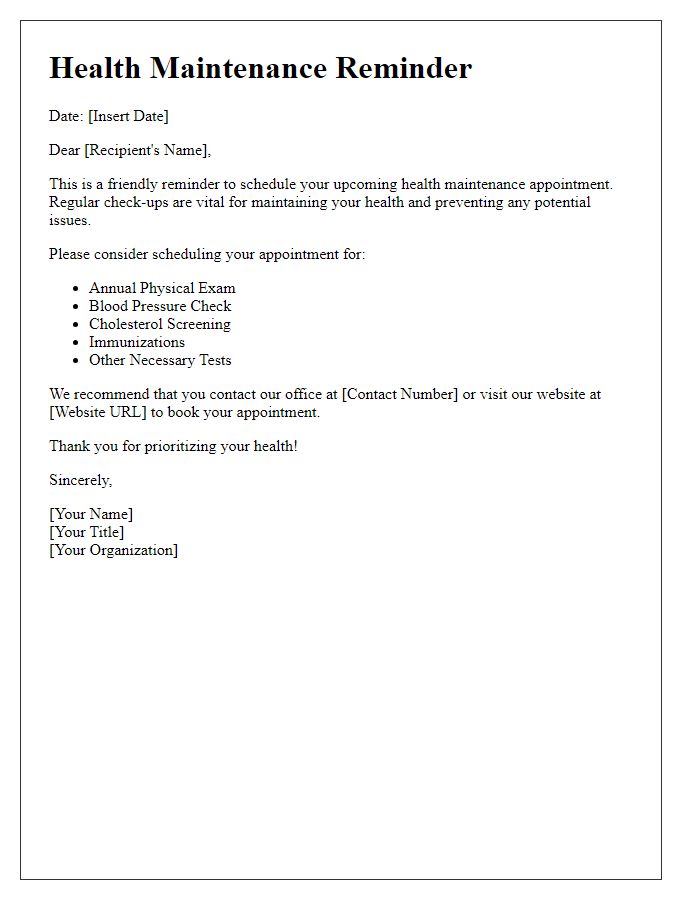
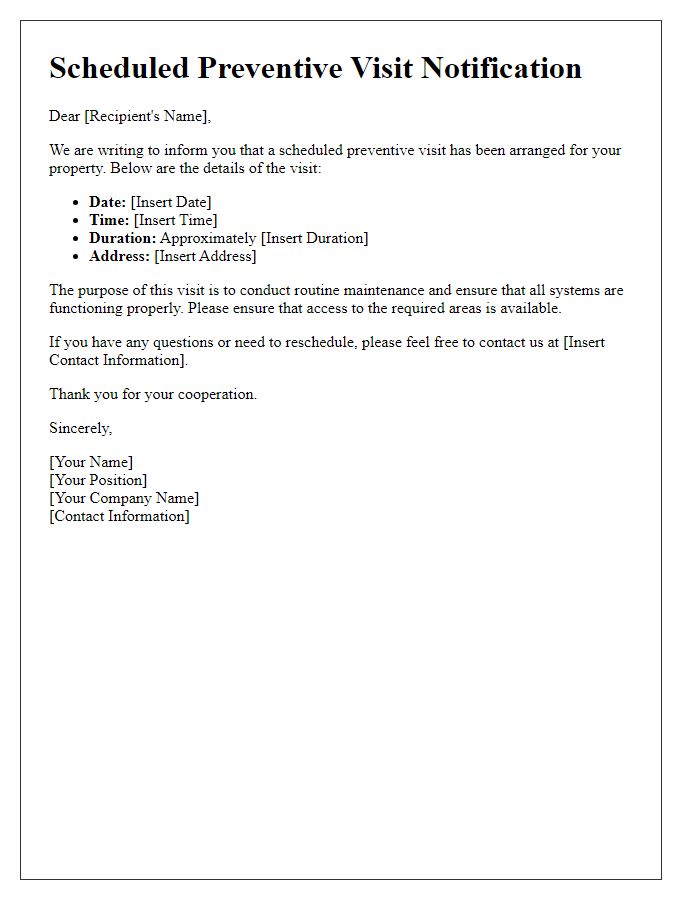
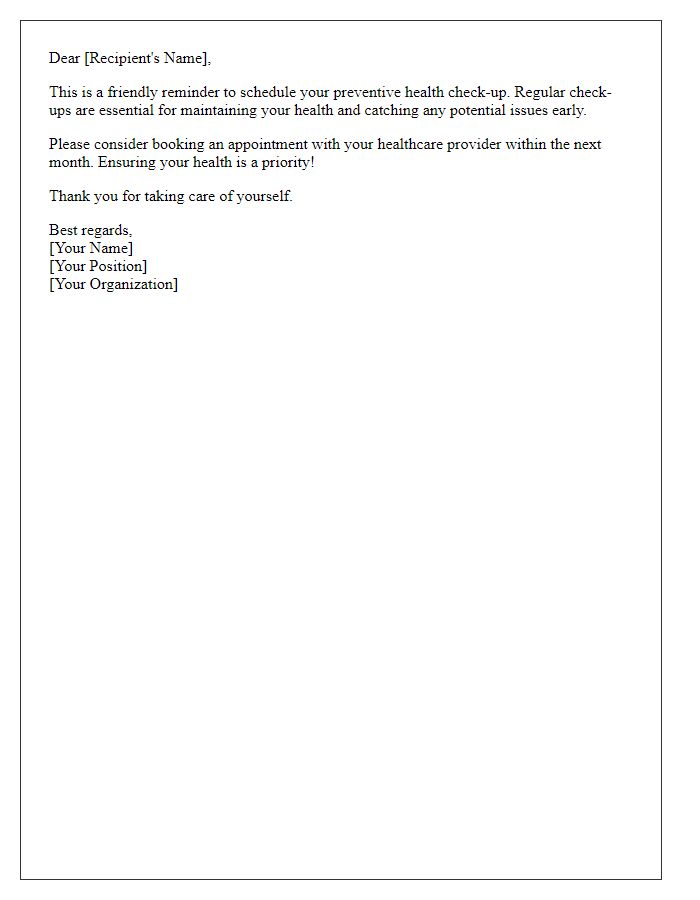
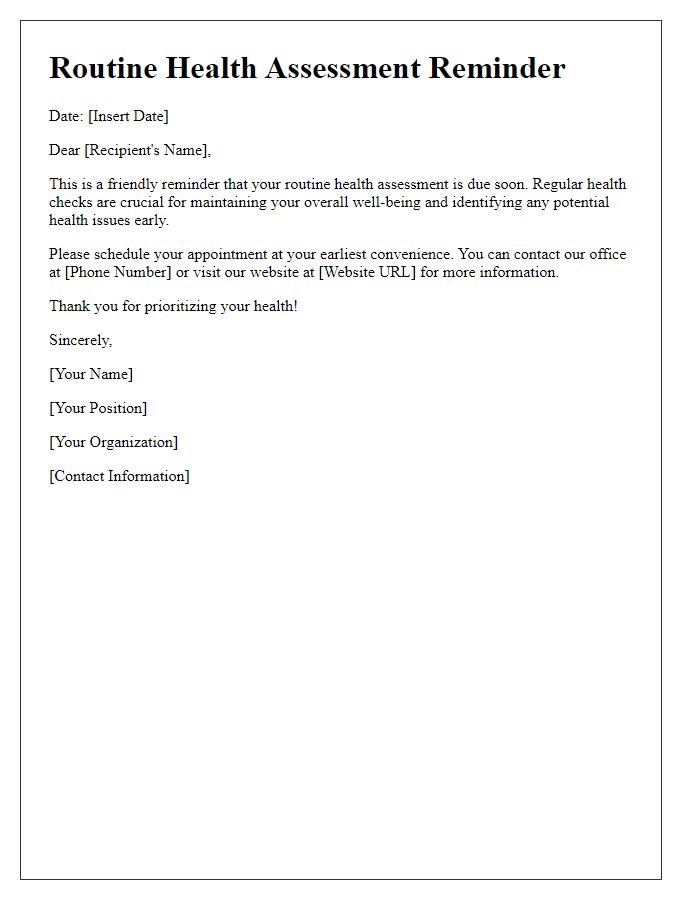
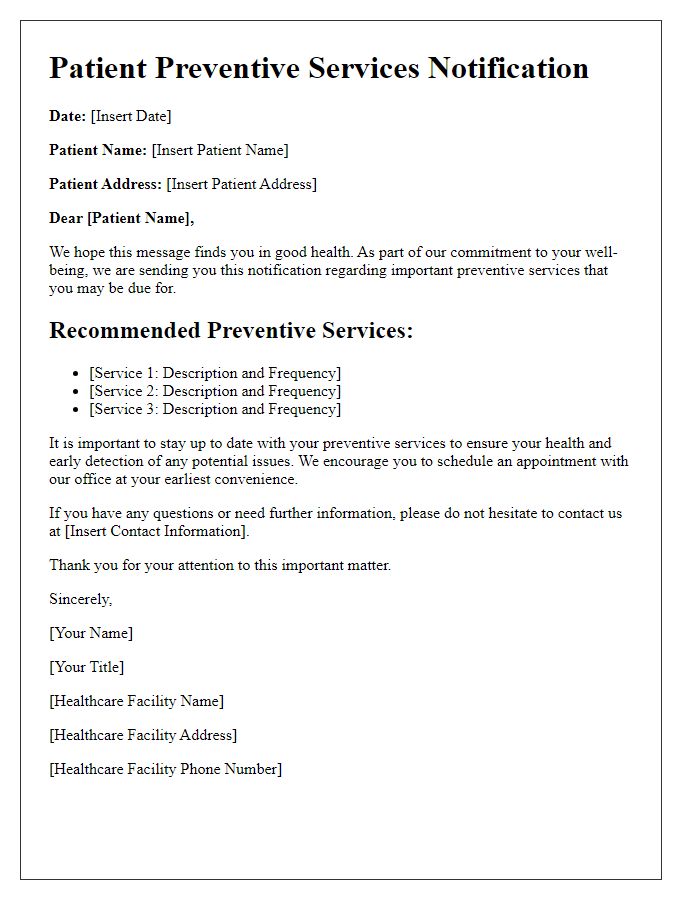


Comments